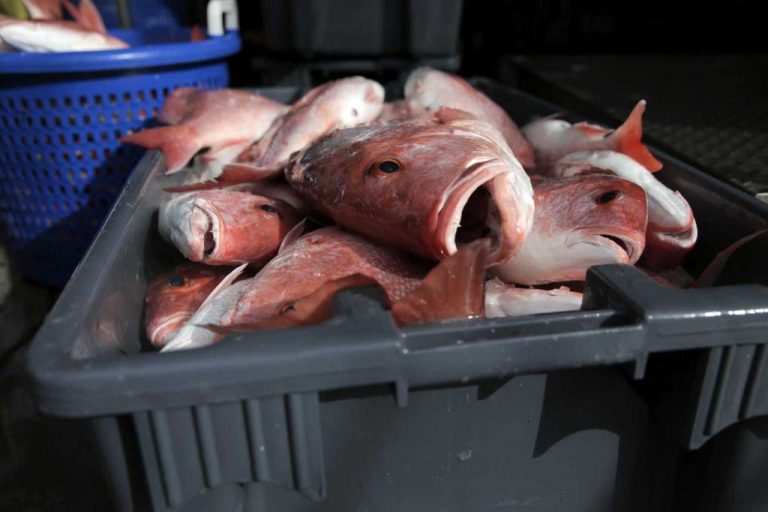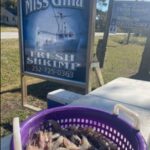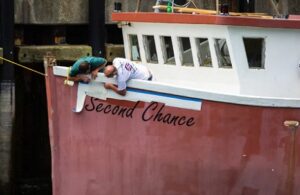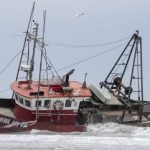Tag Archives: Atlantic States Marine Fisheries Commission
Omega Protein Employees and Supporters Call for Fisheries Managers To Protect Menhaden Jobs
 457 Omega Protein employees and supporters have signed a petition urging the Atlantic States Marine Fisheries Commission (ASMFC) to protect the jobs created by the Atlantic menhaden fishery. The petition, part of the public comment process for Amendment 3 to the Atlantic Menhaden Interstate Fishery Management Plan, provides the Commission with the perspectives of those whose livelihoods would be most affected by any new restrictions on the menhaden fishery, and contrasts the outside pressure generated by international environmental groups and individuals who do not live in one of the 15 Atlantic coastal states. The Omega Protein petition, addressed to the ASMFC’s Atlantic Menhaden Fishery Management Plan Coordinator Megan Ware, calls for the ASMFC to continue its current menhaden management approach until its scientific advisers finish their ongoing work developing menhaden-specific ecological reference points. Some environmental groups are advocating for interim reference points that reduce catch levels by up to 80 percent. click here to read the story 20:29
457 Omega Protein employees and supporters have signed a petition urging the Atlantic States Marine Fisheries Commission (ASMFC) to protect the jobs created by the Atlantic menhaden fishery. The petition, part of the public comment process for Amendment 3 to the Atlantic Menhaden Interstate Fishery Management Plan, provides the Commission with the perspectives of those whose livelihoods would be most affected by any new restrictions on the menhaden fishery, and contrasts the outside pressure generated by international environmental groups and individuals who do not live in one of the 15 Atlantic coastal states. The Omega Protein petition, addressed to the ASMFC’s Atlantic Menhaden Fishery Management Plan Coordinator Megan Ware, calls for the ASMFC to continue its current menhaden management approach until its scientific advisers finish their ongoing work developing menhaden-specific ecological reference points. Some environmental groups are advocating for interim reference points that reduce catch levels by up to 80 percent. click here to read the story 20:29
Cuomo threatens to sue if fluke quotas aren’t reallocated
 Gov. Andrew M. Cuomo threatened Tuesday to sue the federal government if two interstate fishery-management agencies meeting in December fail to reach an “equitable” redistribution of the coastwide quota for fluke. In a letter to U.S. Secretary of Commerce Wilbur Ross on Tuesday, Cuomo wrote it was “imperative” that the federal and interstate agencies take “immediate action” to “reallocate” the quota for fluke “in a fair and equitable manner or New York will be forced to take legal action to protect the interests of fishermen in this state.” Cuomo gave the agencies until December to act. click here to read the story click here to read the letter 09:46
Gov. Andrew M. Cuomo threatened Tuesday to sue the federal government if two interstate fishery-management agencies meeting in December fail to reach an “equitable” redistribution of the coastwide quota for fluke. In a letter to U.S. Secretary of Commerce Wilbur Ross on Tuesday, Cuomo wrote it was “imperative” that the federal and interstate agencies take “immediate action” to “reallocate” the quota for fluke “in a fair and equitable manner or New York will be forced to take legal action to protect the interests of fishermen in this state.” Cuomo gave the agencies until December to act. click here to read the story click here to read the letter 09:46
Commerce chief Ross makes waves, roils fisheries rules
 Commerce Secretary Wilbur Ross has wasted little time in giving a jolt to the nation’s fisheries. In June, the 79-year-old billionaire investor who now oversees NOAA Fisheries singlehandedly extended the fishing season for red snapper in the Gulf of Mexico, ignoring protests from scientists and environmentalists that it could spur overfishing of the popular species. Then in an unprecedented decision in July, he handed a big win to New Jersey fishermen and the state’s Republican governor, Chris Christie, by overturning catch limits for summer flounder that had been approved by an interstate fisheries commission.,, “Secretary Ross finally challenged them — the first time in the history of the commission they got challenged — and they don’t like it,” said Donofrio, who gave the president a “Fishermen for Trump” bumper sticker at a recent event. “I love it. … The commission got kicked in the balls, and they don’t like it. That’s just too bad.” click here to read the story 12:27
Commerce Secretary Wilbur Ross has wasted little time in giving a jolt to the nation’s fisheries. In June, the 79-year-old billionaire investor who now oversees NOAA Fisheries singlehandedly extended the fishing season for red snapper in the Gulf of Mexico, ignoring protests from scientists and environmentalists that it could spur overfishing of the popular species. Then in an unprecedented decision in July, he handed a big win to New Jersey fishermen and the state’s Republican governor, Chris Christie, by overturning catch limits for summer flounder that had been approved by an interstate fisheries commission.,, “Secretary Ross finally challenged them — the first time in the history of the commission they got challenged — and they don’t like it,” said Donofrio, who gave the president a “Fishermen for Trump” bumper sticker at a recent event. “I love it. … The commission got kicked in the balls, and they don’t like it. That’s just too bad.” click here to read the story 12:27
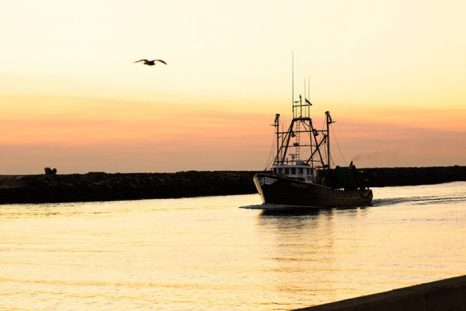
New Jersey Anglers and Commercial Fishermen: Discussion on negative impact of Fishing Limits
A trip to Annapolis, Maryland might be what saves the 2018 New Jersey fishing season. Saltwater anglers and their allies crowded the Stafford Township municipal chambers, where the Marine Fisheries Council held its regular Sept. 7 meeting. Although the first hour was filled with its usual reports and comments, the Council’s second hour saw passionate arguments and discussion from Council and audience members about what to do with the ever-shortening fishing season and its negative impact on commercial fishermen throughout the state and beyond. click here to read the story 15:29

New Southern New England lobster fishing rules on the way amid warming waters
New restrictions are coming to southern New England’s lobster fishery in an attempt to save the area’s population of the crustaceans, which has dwindled as waters have warmed. An arm of the interstate Atlantic States Marine Fisheries Commission voted on Tuesday to pursue new management measures to try to slow the decline of lobsters in the area. Management tools will include changes to legal harvesting size, reductions to the number of traps and seasonal closures to fishing areas. The board’s move was “a recognition that climate change and warming water temperatures play an increasingly role in lobster stocks, especially in southern New England,” said Tina Berger, a spokeswoman for the commission. click here to read the story 11:23
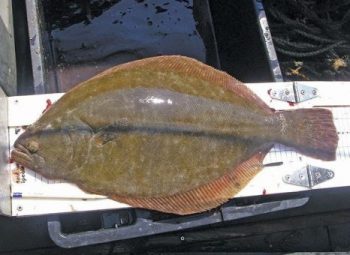
Trump official’s flounder ruling clouds Atlantic coast fish conservation
No one considers summer flounder an iconic Bay species. But fishery managers and conservationists say the ripple effect of a controversial Trump administration decision to let more “fluke” be caught in New Jersey may impact how important species such as striped bass and menhaden are managed in the Chesapeake. In the wake of an unprecedented decision by the U.S. Department of Commerce, some in Maryland are already calling on fishery managers to challenge how coastwide fishing restrictions are implemented in the Bay. The concern stems from a July ruling by Commerce Secretary Wilbur Ross that allowed New Jersey to reject harvest limits accepted by all other East Coast fishery managers, which were aimed at stemming a seven-year decline in the summer flounder population. In recent decades, states had appealed similar harvest cutbacks ordered by the Atlantic States Marine Fisheries Commission 22 times. Never before had the commerce secretary overturned a decision by the interstate panel. click here to read the story 08:47
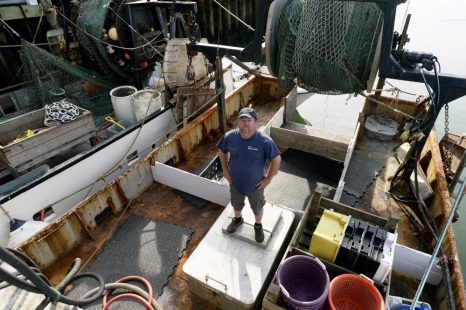
Maine fishermen, scientists combine forces with goal to save shrimp fishery
For more than 20 years, Dana Hammond made close to half his annual income shrimping. But his shrimping profits began to dwindle in 2013. That season, regulators were alarmed by the lack of shrimp biomass in the Gulf of Maine, and the amount he was allowed to catch was cut 72 percent. The fishery was closed entirely in 2014. It hasn’t reopened since and Hammond, who fishes out of Portland on his boat the Nicole Leigh, has been trying to make up the deficit from his other main source of income, groundfishing. But Hammond isn’t ready to let shrimping go. click here to read the story 09:22
Our View: Federal fishery decision undermines management
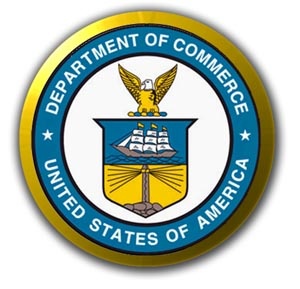 Years of measured, responsible attempts to improve the effectiveness of the Magnuson-Stevens Fishery Conservation and Management Act in these dynamic and troubled waters are challenged by a new threat: the secretary of Commerce, the next to last stop (before the president himself) in the chain of command for fishery management. Commerce Secretary Wilbur Ross, known as the “King of Bankruptcy” for his investment strategy, overruled at the end of July a decision by the Atlantic States Marine Fisheries Commission, potentially undermining the cooperative management of near-shore fisheries of the 15 coastal states from Maine to Florida. click here to read the op-ed 09:38
Years of measured, responsible attempts to improve the effectiveness of the Magnuson-Stevens Fishery Conservation and Management Act in these dynamic and troubled waters are challenged by a new threat: the secretary of Commerce, the next to last stop (before the president himself) in the chain of command for fishery management. Commerce Secretary Wilbur Ross, known as the “King of Bankruptcy” for his investment strategy, overruled at the end of July a decision by the Atlantic States Marine Fisheries Commission, potentially undermining the cooperative management of near-shore fisheries of the 15 coastal states from Maine to Florida. click here to read the op-ed 09:38
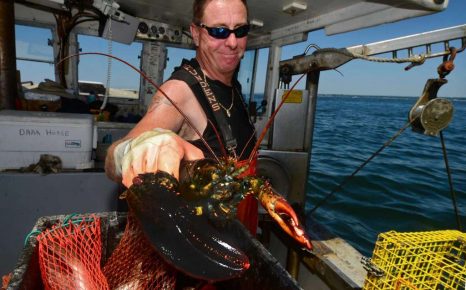
L.I. Sound lobstermen avoid regulatory pincers
Lobstermen working Long Island Sound dodged new limits on their fishery last week when federal regulators failed to adopt restrictions aimed at reversing a decades-long decline in the lobster population. An arm of the Atlantic States Marine Fisheries Commission voted down additional management measures, including a reduction in the size of lobster that could be harvested and a shorter season. “We are ecstatic,” said Mike Kalaman, a Norwalk lobstermen who believes the population is returning on its own, thanks to cleaner water and natural cycles. “We keep telling them that what’s in place is working,” Kalaman said. “If it’s not broke, don’t fix it. It’s fixing itself.” The decision by the American Lobster Management Board to defeat fishing restrictions was unusual; the board almost always adopts new management measures. The proposal on the table, developed by experts after months of research and deliberation, failed after numerous votes by a divided board. click here to read the story 08:20
RI And MA Lobstermen At Odds With Regulators Over Conservation Efforts – click here to read the story
No new rules for declining southern New England lobstering
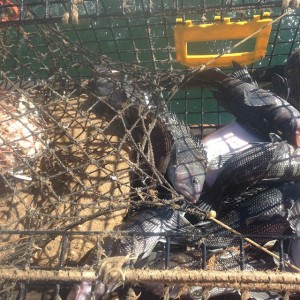 An interstate panel that manages fisheries voted on Tuesday against a plan to try to preserve the declining southern New England lobster population with new fishing restrictions.The New England lobster fishery is based largely in Maine, where the catch has soared to new heights in recent years. But the population has collapsed off Connecticut, Rhode Island, southern Massachusetts and New York’s Long Island as waters have warmed in those areas. An arm of the Atlantic States Marine Fisheries Commission considered a host of new restrictions about lobster fishing in southern New England on Tuesday and chose to shoot the plan down.,, “It’s time to think a little differently about how we are managing lobsters in southern New England,” board member Peter Burns said. “We know there are things we can do,” (it was a lively discussion!) click here to read the story 18:38
An interstate panel that manages fisheries voted on Tuesday against a plan to try to preserve the declining southern New England lobster population with new fishing restrictions.The New England lobster fishery is based largely in Maine, where the catch has soared to new heights in recent years. But the population has collapsed off Connecticut, Rhode Island, southern Massachusetts and New York’s Long Island as waters have warmed in those areas. An arm of the Atlantic States Marine Fisheries Commission considered a host of new restrictions about lobster fishing in southern New England on Tuesday and chose to shoot the plan down.,, “It’s time to think a little differently about how we are managing lobsters in southern New England,” board member Peter Burns said. “We know there are things we can do,” (it was a lively discussion!) click here to read the story 18:38
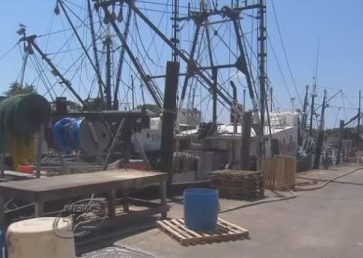
Fluke-catching quota costing fishermen thousands
Dozens of commercial fishermen say they are losing out on pay after they reached their state-imposed limit on how many fluke they are allowed to catch. Captain Roy Diehl says he and dozens of other commercial fluke fishermen are docked because they caught their allowed quota for the July-August season just two weeks after it opened. He says he blames the 30 percent quota reduction set by the Atlantic States Marine Fisheries Commission for this year. “What it does is it takes seven weeks of income out of everybody’s paycheck for the year,” says Diehl. “It’s pretty tough because there’s a lot of fluke out there and we can’t have them.” Video, read the story here 22:51
Trump administration steps in on fishing limits, and the implications could ripple
 “The commission is deeply concerned about the near-term impact on our ability to end overfishing on the summer flounder stock as well as the longer-term ability for the commission to effectively conserve numerous other Atlantic coastal shared resources,” Douglas Grout, the commission’s chair, said in a statement. “New Jersey makes a compelling argument that the measures it implemented this year, despite increasing catch above the harvest target, will likely reduce total summer flounder mortality in New Jersey waters to a level consistent with the overall conservation objective,” Chris Oliver, assistant administrator of fisheries at NOAA, wrote the commission in a letter on behalf of Ross. The move infuriated commissioners and fishing officials throughout the area, as well as the region’s NOAA officials. “Ross was brilliant in his decision,” said Jim Donofrio, executive director of the Recreational Fishing Alliance in New Jersey, which represents thousands of recreational fishermen across the country. “The Trump administration has challenged a broken fishery management system in this country, and I applaud them for doing it.” click here to read the story 10:10
“The commission is deeply concerned about the near-term impact on our ability to end overfishing on the summer flounder stock as well as the longer-term ability for the commission to effectively conserve numerous other Atlantic coastal shared resources,” Douglas Grout, the commission’s chair, said in a statement. “New Jersey makes a compelling argument that the measures it implemented this year, despite increasing catch above the harvest target, will likely reduce total summer flounder mortality in New Jersey waters to a level consistent with the overall conservation objective,” Chris Oliver, assistant administrator of fisheries at NOAA, wrote the commission in a letter on behalf of Ross. The move infuriated commissioners and fishing officials throughout the area, as well as the region’s NOAA officials. “Ross was brilliant in his decision,” said Jim Donofrio, executive director of the Recreational Fishing Alliance in New Jersey, which represents thousands of recreational fishermen across the country. “The Trump administration has challenged a broken fishery management system in this country, and I applaud them for doing it.” click here to read the story 10:10
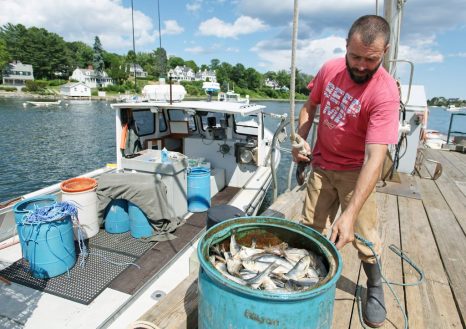
This year, a welcome switch on bait supply for Maine lobstermen
Bait freezers along the coast are full of herring and pogies, and even alewives, which means that bait is not only available, it is also much less expensive than last year when herring cost as much as 60 cents a pound, said Pat Keliher, commissioner of the state Department of Marine Resources. This year the lobstermen’s go-to bait costs about half as much. That’s still not a great price, Keliher said. Herring fetched about 18 cents a pound at the start of the 2015 lobstering season. “I won’t say we’re in great shape, but we are in a heck of a lot better shape than we were last year,” Keliher said. He attributed the strong start to basic supply-and-demand economics. click here to read the story 08:18
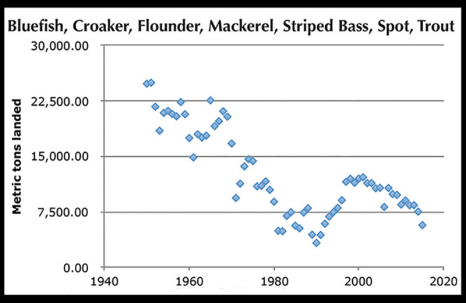
Chesapeake Bay fishery to keep deteriorating unless nutrients from land are addressed
The March Bay Journal 2017 commentary, Don’t let menhaden become a case of could have, should have, would have, laments the decline in Bay menhaden populations and blames the reduced number of predatory “sport” fish on Omega Protein’s harvest (click here). The Atlantic States Marine fisheries Commission is quite clear this year that “Atlantic menhaden are neither overfished nor experiencing overfishing” (click here). In Maryland, juvenile menhaden are sampled annually through the Estuarine Juvenile Finfish Survey. The index of juvenile menhaden has been low since 1992, and “environmental conditions seem to be a major factor driving recruitment.” (click here). Something other than overfishing must contribute to, or even be responsible for, reduced Bay menhaden populations. I contend that the primary cause of depleted finfish stocks, including bottom-feeding fish like croaker that do not eat menhaden, and the menhaden themselves, is poor water quality, not overfishing. click here to read the story 12:17
Garden State officials make their case to feds as fluke battle rages on
With New Jersey’s summer flounder fishing industry on the line, Garden State officials made their case to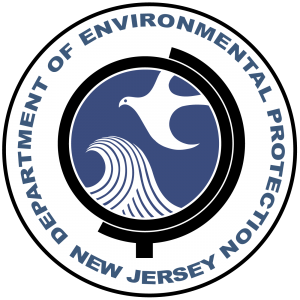 fisheries on Tuesday afternoon. In a hearing with the federal agency, New Jersey Department of Environmental Protection officials argued that the state’s regulations for summer flounder (or fluke) fishing reach conservation equivalency with new federal regulations. The cornerstone of New Jersey’s argument: That the state’s proposed regulations will actually preserve more of the summer flounder stock than the measures being put forth by the feds. Tuesday’s call was closed to the press, but in a statement following the call NJDEP spokesperson Bob Considine described it as a “good discussion.” click here to read the story 08:37
fisheries on Tuesday afternoon. In a hearing with the federal agency, New Jersey Department of Environmental Protection officials argued that the state’s regulations for summer flounder (or fluke) fishing reach conservation equivalency with new federal regulations. The cornerstone of New Jersey’s argument: That the state’s proposed regulations will actually preserve more of the summer flounder stock than the measures being put forth by the feds. Tuesday’s call was closed to the press, but in a statement following the call NJDEP spokesperson Bob Considine described it as a “good discussion.” click here to read the story 08:37
The Bunker Resurgence: The Good News Beyond Recent Fish Kills
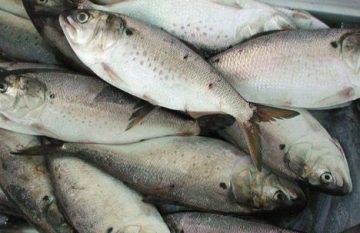 According to Megan Ware, Fishery Management Plan Coordinator of the Atlantic States Marine Fisheries Commission in Arlington, Virginia, “Results of the 2015 stock assessment indicate that the [menhaden] stock is not overfished, and overfishing is not occurring.”Joe Warren, an associate professor with the School of Marine and Atmospheric Sciences at Stony Brook University, agrees. Professor Warren’s lab uses acoustics to estimate the biomass (weight) of menhaden in the Peconic River and Flanders Bay. That’s essentially the same technology recreational fishermen employ using fishfinders.,,, Warren further observed that each of the surveys encountered anywhere from five to 25 schools that could range from hundreds to tens of thousands of fish. The professor cited anecdotal evidence that there are more bunker in New York waters as humpback whales off the Atlantic coast on the south side of Long Island have been observed feeding on bunker during the past several years. click here to read the story 15:37
According to Megan Ware, Fishery Management Plan Coordinator of the Atlantic States Marine Fisheries Commission in Arlington, Virginia, “Results of the 2015 stock assessment indicate that the [menhaden] stock is not overfished, and overfishing is not occurring.”Joe Warren, an associate professor with the School of Marine and Atmospheric Sciences at Stony Brook University, agrees. Professor Warren’s lab uses acoustics to estimate the biomass (weight) of menhaden in the Peconic River and Flanders Bay. That’s essentially the same technology recreational fishermen employ using fishfinders.,,, Warren further observed that each of the surveys encountered anywhere from five to 25 schools that could range from hundreds to tens of thousands of fish. The professor cited anecdotal evidence that there are more bunker in New York waters as humpback whales off the Atlantic coast on the south side of Long Island have been observed feeding on bunker during the past several years. click here to read the story 15:37
Hearing on new shrimp rules draws tiny crowd in Ellsworth
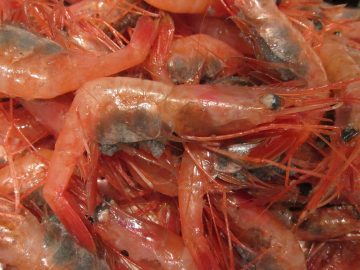 Fishermen barely outnumbered representatives of the Atlantic States Marine Fisheries Commission last Thursday at a public hearing in City Hall on proposed rule changes that would reshape shrimp fishing in the Gulf of Maine. Three fishermen — John Williams and Ricky Trundy, both of Stonington, and James West of Sorrento — offered comments on a proposed amendment to the ASMFC fisheries management plan for northern shrimp. Department of Marine Resources External Affairs Director Terry Stockwell and Resource Management Coordinator Trisha Cheney dutifully recorded those comments on behalf of the ASMFC. Although a somewhat larger crowd was on hand for a hearing the previous evening in Augusta, the sparse audience reflected the state of the fishery from Downeast waters. click here to read the story 12:34
Fishermen barely outnumbered representatives of the Atlantic States Marine Fisheries Commission last Thursday at a public hearing in City Hall on proposed rule changes that would reshape shrimp fishing in the Gulf of Maine. Three fishermen — John Williams and Ricky Trundy, both of Stonington, and James West of Sorrento — offered comments on a proposed amendment to the ASMFC fisheries management plan for northern shrimp. Department of Marine Resources External Affairs Director Terry Stockwell and Resource Management Coordinator Trisha Cheney dutifully recorded those comments on behalf of the ASMFC. Although a somewhat larger crowd was on hand for a hearing the previous evening in Augusta, the sparse audience reflected the state of the fishery from Downeast waters. click here to read the story 12:34
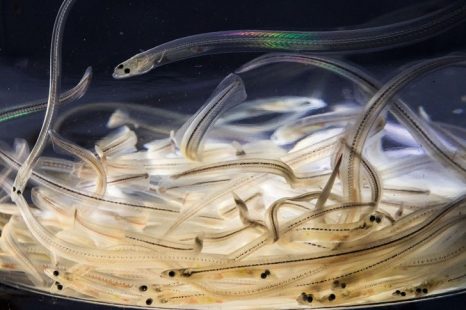
Inside the Multi-million-Dollar World of Eel Trafficking
The alleged kingpin of one of the biggest domestic wildlife smuggling operations ever to hit the East Coast is exactly where you’d expect to find him on a rainy evening in early May: firmly planted in a swivel chair at a big green metal desk inside his renovated Quonset hut on Foster Street, in Ellsworth, Maine. At this post Bill Sheldon waits day and night for fishermen to come and fill his bowl with writhing masses of baby eels. The 72-year-old fisherman wears glasses, a blue flannel shirt, jeans, duck boots, and a brown L.L. Bean baseball cap. His cell phone goes quack, quack, quack when it rings. The sign above his head reads, “Buying Glass Eels Here,” with the day’s market price: $1,250 per pound. (so much more about the fishery in this article than “trafficking”) click here to read the story 09:26
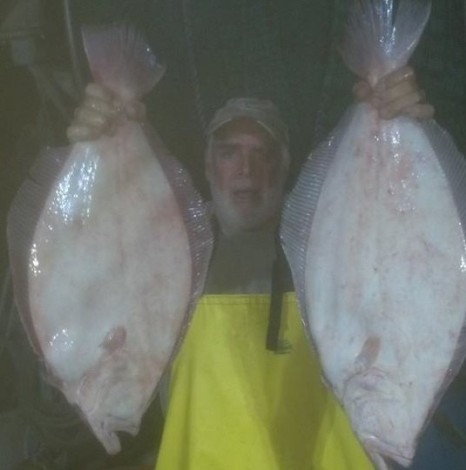
A little story about my day at sea yesterday
So we leave to go fishing at 0330 with an observer that the government forces us to take. Now the young man is a likable enough guy who I have no problem with. The problem is we are forced to take these people with no exception. When they tell you they are going to put one on your boat you either take them or you deal with the wrath of NOAA law enforcement. So we go out with the plan of going to catch some scup, fluke and sea bass to unload in Connecticut. We had some nice scup the day before and figured we would get CT’s allowance which is a whopping 1200 pounds of scup, 75 lbs. of fluke and 10 sea bass in count. So we make a couple of tows and come up a bit light on the scup but have the fluke and sea bass. We go and unload ion CT. and on the way there, which happens to be a 2 hour+ steam each way I am informed that the scup that we landed the previous day which had been paying around 60 cents per pound had dropped to 10 to 15 cents per pound. Not even worth the fuel to catch. WONDERFUL. So we go all the way to CT. , unload our catch and head back another 2+ hours for home. After we get back to our dock, I and my crewman are cleaning up the boat and we notice someone on the dock with a camera taking pictures of us as he walks by. No big deal.,,, Click here to read the story 10:24
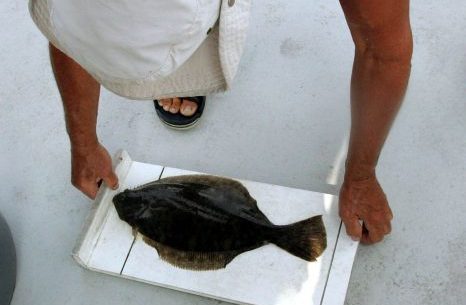
New Jersey has good reasons to resist federal rules on fluke
If federal fisheries managers got fan mail from some flounder these days, would it side with their catch limits or New Jersey’s defiant alternate rules? State and local officials and the N.J. congressional delegation pushed hard against this year’s federal plan to reduce the catch of summer flounder, also called fluke, by 30 percent. The Atlantic States Marine Fisheries Commission wanted to require fish to be an inch bigger to be kept — 19 inches in the ocean and nearby waters and 18 inches in Delaware Bay. Since last year’s limits were already tough on fishers and marine businesses, the plan prompted an uproar. Rep. Frank LoBiondo said “unelected bureaucrats in Washington use questionable methodologies and outdated science to cut us off at the knees.” He and fellow Rep. Frank Pallone introduced bipartisan legislation to prevent the new flounder quotas from taking effect. click here to read the story 10:28
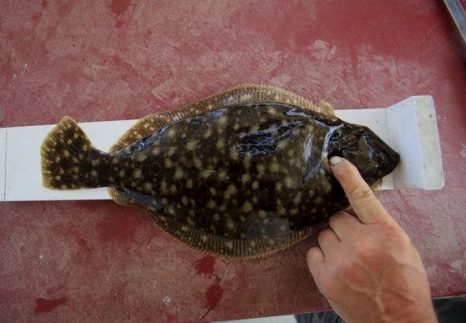
Feds threaten shutdown of N.J. Fluke fishery as showdown escalates
Call it the Great Flounder War of 2017. A simmering battle between New Jersey recreational fisherman and the federal agency governing fishing along the Atlantic Coast has now escalated — with potentially disastrous consequences for the fishermen. In a teleconference on Thursday morning, the Atlantic States Marine Fisheries Commission (ASMFC) officially found New Jersey to be out of compliance with federal regulations. The matter is now headed to U.S. Secretary of Commerce Wilbur Ross for a final decision. If Ross agrees with the recommendation, both recreational and commercial fluke fishing could end up banned altogether in the Garden State. ,, And here’s where things get really sticky: If Sec. Ross finds New Jersey to be out of compliance, he’d have the option of imposing a moratorium on summer flounder fishing in the state — a moratorium that would also apply to commercial fishermen, who thus far have been in compliance with the feds. (Earlier this year, the state’s commercial fishermen agreed to lower fishing quotas imposed by ASMFC.) click here to read the story 08:19
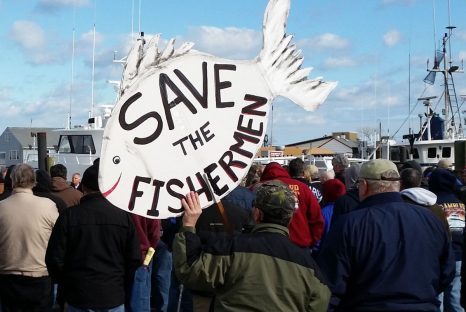
Atlantic States Marine Fisheries Commission rejects NJ’s proposed flounder regulations
The drama surrounding New Jersey’s summer flounder regulations continued Monday, as a regional fisheries management board rejected the state’s adopted regulations for the popular marine catch just days before the fishing season is scheduled to start. The Atlantic States Marine Fisheries Commission, a regional agency that helps set fishing quotas for the 15 East Coast states, found New Jersey’s regulations for the upcoming season were not sufficiently strict to reduce the catches needed to keep the stock healthy and compensate for past years of overfishing. New Jersey’s Marine Fisheries Council adopted those regulations last week, in anticipation that they might be an acceptable compromise. The commission’s rejection means the state is “out of compliance,” a designation that could prompt federal regulators to shut down the entire flounder fishery for recreational and commercial anglers. click here to read the story 15:14
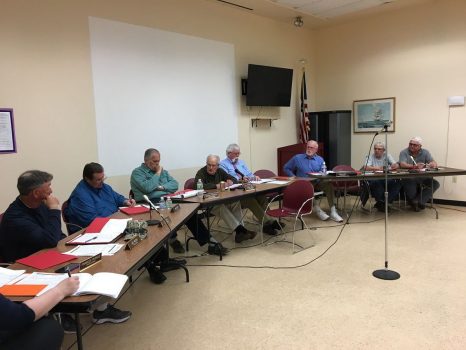
New Jersey: Fisheries Council decides on flounder limits for season
The State Marine Fisheries Council decided Wednesday to go along with the new 2017 federal regulations for flounder fishing. The regulation, approved by the Atlantic States Marine Fisheries Commission, allows a catch of no more than three fish at 18 inches or more for recreational fishermen. Flounder season begins May 25 and continues for 104 days to Sept 6. “It’s the best deal for fishermen,” said acting council Chairman Dick Herb. Click here to read the rest, we will update this as we find the articles 10:04
Sharp Cut to ’17 Fluke Harvest – NY Commercial harvesters are allowed to land fluke in state waters year round, subject to a daily limit of 50 pounds. Click here to read the story 15:04
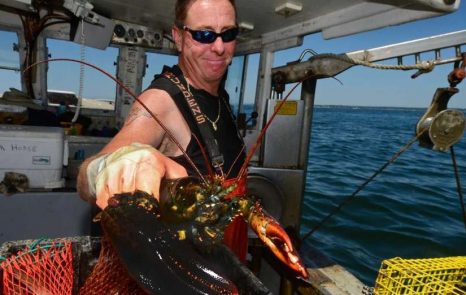
New restrictions seek to save Long Island Sound lobsters
A multistate fisheries commission is poised to slap more restrictions on Long Island Sound lobster fishing in another effort to stabilize the numbers of crustaceans. An arm of the Atlantic States Marine Fisheries Commission last week agreed to change the rules in hopes of slowing the continuing decline of lobster in southern New England. The numbers have been falling due to warmer water caused by climate change. “The goal is to preserve what there is,” said Mark Alexander, assistant fisheries manager for the state Department of Energy and Environmental Protection and a voting member on the fisheries commission. “It’s a disgrace,” said Roger Frate, a veteran Darien lobsterman, referring to the commission’s proposed restrictions. Mike Kalaman, a Norwalk lobsterman, said fishermen prefer no additional restrictions. Still, he said the proposed 5 percent egg production goal is better than some of the commission’s more stringent proposals. Click here to read the story 08:14
Pallone Supports Potential Compromise on Summer Flounder Cuts
 This week, Congressman Frank Pallone, Jr. (NJ-06) expressed support for a potential compromise between the State of New Jersey and Atlantic States Marine Fisheries Commission (ASMFC) on Summer Flounder Cuts. ASMFC agreed to consider a proposal by the State for conservationally-equivalent management measures for the 2017 summer flounder fishery, and is expected to reach a decision in the next two weeks. In exchange for a 104-day fishing season and the 3 bag limit, the size limit would be decreased to 18 inches. The Commission postponed a decision on that until the next meeting of the Interstate Fisheries Management Program in two weeks. Pallone and Senator Booker sent a letter to NOAA Fisheries about its proposal to reduce the ABC recreational and commercial quotas for summer flounder in 2017 and 2018. The New Jersey lawmakers requested that NOAA Fisheries postpone any decision on reducing summer flounder quotas until it conducts a new benchmark summer flounder assessment. Click here to read the letter 14:37
This week, Congressman Frank Pallone, Jr. (NJ-06) expressed support for a potential compromise between the State of New Jersey and Atlantic States Marine Fisheries Commission (ASMFC) on Summer Flounder Cuts. ASMFC agreed to consider a proposal by the State for conservationally-equivalent management measures for the 2017 summer flounder fishery, and is expected to reach a decision in the next two weeks. In exchange for a 104-day fishing season and the 3 bag limit, the size limit would be decreased to 18 inches. The Commission postponed a decision on that until the next meeting of the Interstate Fisheries Management Program in two weeks. Pallone and Senator Booker sent a letter to NOAA Fisheries about its proposal to reduce the ABC recreational and commercial quotas for summer flounder in 2017 and 2018. The New Jersey lawmakers requested that NOAA Fisheries postpone any decision on reducing summer flounder quotas until it conducts a new benchmark summer flounder assessment. Click here to read the letter 14:37
New rules aim to boost herring supply prized as lobster bait
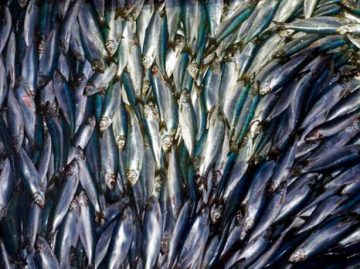 The Atlantic States Marine Fisheries Commission adopted many of the same measures that Maine implemented last year to try to “stretch out” the limited quota of inshore Atlantic herring into late summer, when lobster boat captains in Maine, New Hampshire and Massachusetts are clamoring for what many fishermen say is the best, and formerly cheapest, kind of lobster bait. The commission voted to allow regulators to set weekly herring quotas, to limit fishing to certain days of the week, and to give the three states that regulate the inshore herring fishery in the southern Gulf of Maine the ability to limit or ban the use of so-called “carrier vessels” that transfer herring landed by a licensed boat so it can keep fishing instead of heading back to port to unload its haul. click here to read the story 08:35
The Atlantic States Marine Fisheries Commission adopted many of the same measures that Maine implemented last year to try to “stretch out” the limited quota of inshore Atlantic herring into late summer, when lobster boat captains in Maine, New Hampshire and Massachusetts are clamoring for what many fishermen say is the best, and formerly cheapest, kind of lobster bait. The commission voted to allow regulators to set weekly herring quotas, to limit fishing to certain days of the week, and to give the three states that regulate the inshore herring fishery in the southern Gulf of Maine the ability to limit or ban the use of so-called “carrier vessels” that transfer herring landed by a licensed boat so it can keep fishing instead of heading back to port to unload its haul. click here to read the story 08:35
Atlantic States Marine Fisheries Commission meeting in Alexandria, Virginia May 8 – 11, 2017 – Listen Live
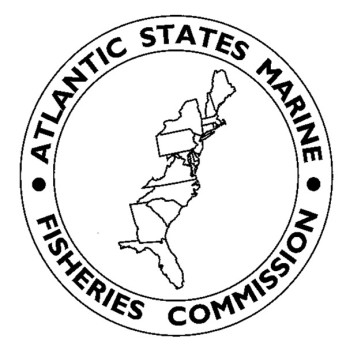 The Atlantic States Marine Fisheries Commission will meet at The Westin Alexandria, 400 Courthouse Square, Alexandria, Virginia 22314, May 8 – 11, 2017 The agenda is subject to change. The agenda reflects the current estimate of time required for scheduled Board meetings. Click here for details, Click here for webinar 12:37
The Atlantic States Marine Fisheries Commission will meet at The Westin Alexandria, 400 Courthouse Square, Alexandria, Virginia 22314, May 8 – 11, 2017 The agenda is subject to change. The agenda reflects the current estimate of time required for scheduled Board meetings. Click here for details, Click here for webinar 12:37
Proposed new rules for lobstering up for vote amid decline in southern New England
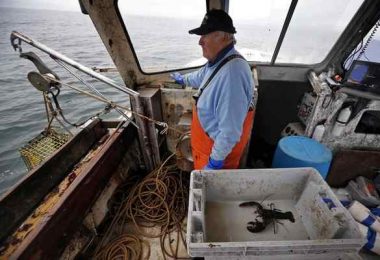 Scientists have said populations of lobsters off of Connecticut, Rhode Island and southern Massachusetts have declined as waters have warmed. A board of the Atlantic States Marine Fisheries Commission is scheduled to vote on new management measures Monday and Tuesday. Fishing managers are considering tools like trap reductions, changes to the legal harvesting size of lobsters and seasonal closures to try to preserve the population. Some lobster fishermen have opposed the possibility of new measures, saying such a move would kill off what remains of a once-vibrant fishery. “Any further reductions in traps would be hard to accommodate, given that there are so few fishermen left in (southern) Massachusetts and Rhode Island,” said Beth Casoni, executive director of the Massachusetts Lobstermen’s Association. click here to read the story 11:26
Scientists have said populations of lobsters off of Connecticut, Rhode Island and southern Massachusetts have declined as waters have warmed. A board of the Atlantic States Marine Fisheries Commission is scheduled to vote on new management measures Monday and Tuesday. Fishing managers are considering tools like trap reductions, changes to the legal harvesting size of lobsters and seasonal closures to try to preserve the population. Some lobster fishermen have opposed the possibility of new measures, saying such a move would kill off what remains of a once-vibrant fishery. “Any further reductions in traps would be hard to accommodate, given that there are so few fishermen left in (southern) Massachusetts and Rhode Island,” said Beth Casoni, executive director of the Massachusetts Lobstermen’s Association. click here to read the story 11:26

































